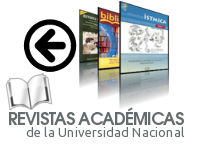Popular Islam though a Colonial Perspective: The Tariqa Darqawiyya and the Spanish Protectorate of Morocco
DOI:
https://doi.org/10.15359/siwo.11-1.6Abstract
Since its origins, the European colonial venture in North Africa and the Middle East was supported by a scientific and academic system that complemented military action. Like other territories under European control, Morocco became an object of study for the purposes of colonization and monitoring of its geography, its populations, its history, and its religious and cultural practices and, of course, its organizations and institutions. Among the organizations that elicited colonial interest were religious brotherhoods (in Arabic ṭarīqa, pl. ṭurūq), which had great religious and social power and influence throughout the country. In Northern Morocco, the area that would eventually become the Spanish Protectorate in Morocco, the most powerful ṭarīqa was the Darqāwiyya, whose presence also extended to the rest of the country, North Africa and some areas of the Middle East. This institution, which had already been studied by the early French colonial authorities, was a target of the Spanish information services all along the colonial period. The Darqāwiyya was seen as a threat to the success of the colonial venture due to its clientele networks and its social and religious prestige. Given that this brotherhood was a fragmented institution, it is impossible to single out a sole leader or a unique politics of action that characterized the entire Darqāwiyya. Instead, the leaders of the different branches of the Darqāwiyya acted according to their particular interests in their relationships with Moroccan and colonial powers. This paper examines the origins of the Darqāwa and its different branches established in Northern Morocco, as well as the origin of the negative portrayals of this brotherhood in the first colonial sources; portrayals that were perpetuated and affirmed by Spanish colonial agents. Through an in-depth examination of several key events, we will analyse the position of the Darqāwa leaders towards the rebellions of Aḥmad al-Raysūnī and ʿAbd al-Krim al-Khaṭṭābī against colonial authorities. In addition, we will discuss the relationships and power games between these leaders and colonial agents during the Spanish Civil War, and their positions towards the rise and flourishing of Moroccan nationalism in the North of the country. Across these different historical moments, we will conclude that, despite the negative view and the mistrust in which the Darqāwa were depicted in colonial sources, both parties collaborated with each other on several occasions for their mutual benefit.
Published
How to Cite
Issue
Section
License
Política propuesta para Revistas que ofrecen Acceso Abierto
Los autores que publican en esta revista están de acuerdo con los siguientes términos:
1. Esta revista provee acceso libre bajo licencia Creative Commons Reconocimiento-NoComercial CC BY - NC. Usted como persona autora conserva sus derechos de autor. Esta licencia permite que otros remezclen, adapten y desarrollen su trabajo sin fines comerciales, siempre y cuando le den crédito y licencien sus nuevas creaciones bajo los mismos términos
2. Los autores pueden establecer por separado acuerdos adicionales para la distribución no exclusiva de la versión de la obra publicada en la revista (por ejemplo, situarlo en un repositorio institucional o publicarlo en un libro), con un reconocimiento de su publicación inicial en esta revista.
3. Se permite y se anima a los autores a difundir sus trabajos electrónicamente (por ejemplo, en repositorios institucionales o en su propio sitio web) antes y durante el proceso de envío, ya que puede dar lugar a intercambios productivos, así como a una citación más temprana y mayor de los trabajos publicados (Véase The Effect of Open Access) (en inglés).











